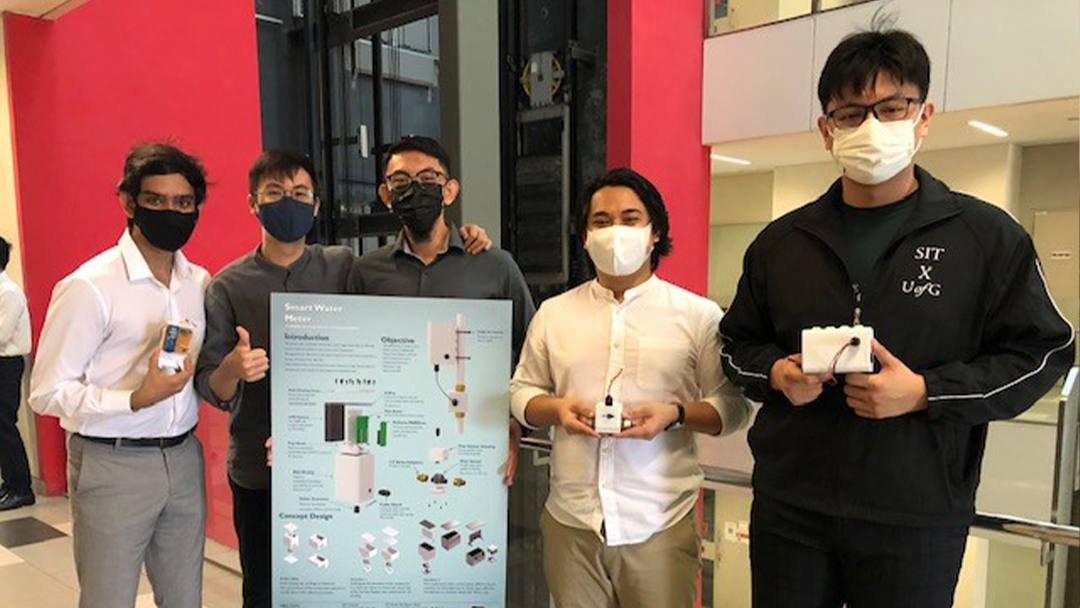![[FA] SIT One SITizen Alumni Initiative_Web banner_1244px x 688px.jpg](/sites/default/files/2024-12/%5BFA%5D%20%20SIT%20One%20SITizen%20Alumni%20Initiative_Web%20banner_1244px%20x%20688px.jpg)
Enhancing control of water usage and cost with Ecosoftt-CLASIC smart meter

Stepping out with the aim of helping low-income households better manage their water usage and bills, CLASIC and water solutions provider Ecosoftt developed and installed smart water meters to monitor water usage at different outlets in these households.
Currently, households in Singapore do not have the means to identify specific activities that cause water wastage. Since water is used for a wide range of household activities, it is difficult to pinpoint specific activities that create wastage. Mechanical water meters can be installed at water points to monitor household water usage. However, this method is inconvenient and yields inaccurate data as users need to record daily readings manually.
CLASIC-Ecosoftt smart water meters allow users to measure water usage at different outlets in their households. Data gathered from the meters can be analysed to help household members to monitor and adjust their water usage.
A group of Mechanical Engineering Year 2 students worked alongside CLASIC and Ecosoftt under the guidance of Associate Professor Steven Tay, Associate Professor Alfred Tan, and Assistant Professor Kyrin Liong. The students worked on a proposal as a specialised engineering project and presented their prototype to CLASIC and Ecosoftt.
The project team filed a provisional patent for their creation after initial trials confirmed that CLASIC-Ecosoftt smart water meters can capture accurate data, are cost-effective, practical, and aesthetically pleasing. CLASIC awarded a project grant to fund the production of smart meters, so students can conduct a 2-week trial in 20 households until early 2022.
This project has also garnered the support of the Public Utilities Board (PUB) while the Singapore Plumbing Society (SPS) will sponsor the cost of the smart water installation in identified households. SIT students will eventually present their findings about water consumption patterns in low-income households to PUB.














